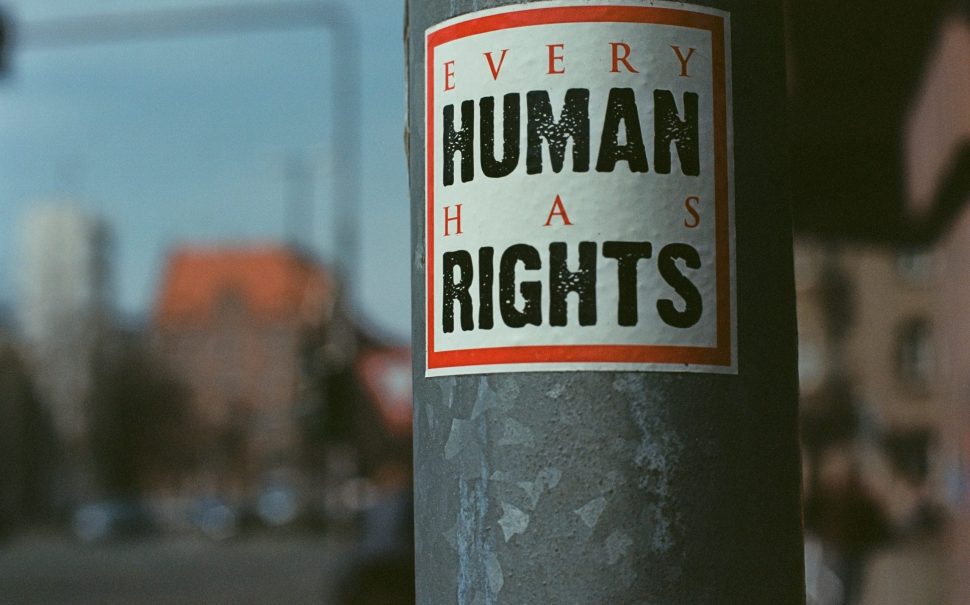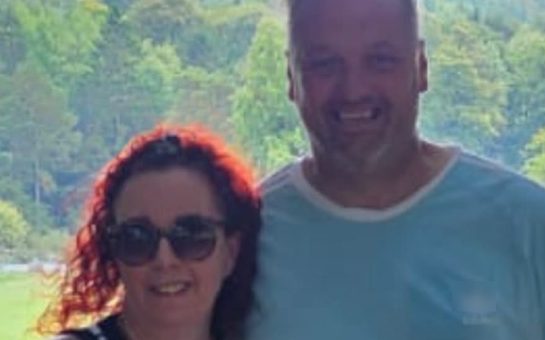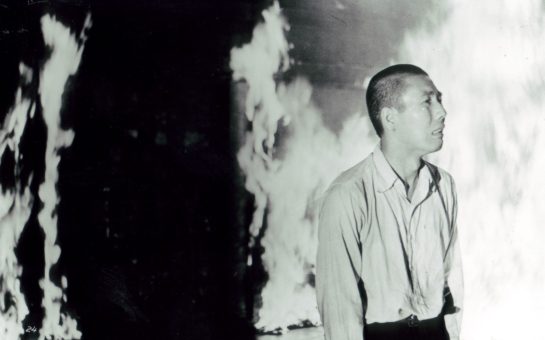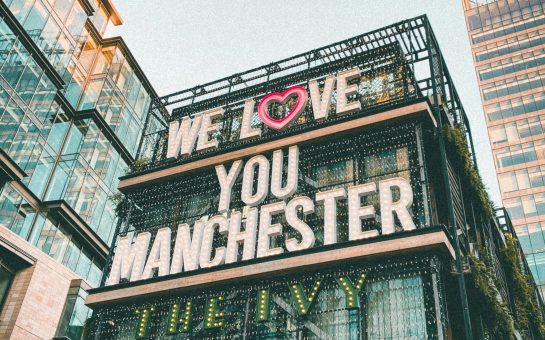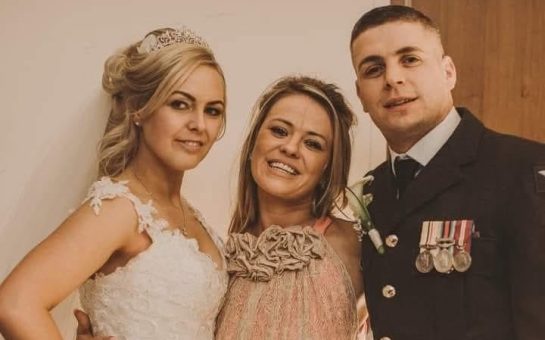Hate crime figures for Greater Manchester show that the area still hasn’t returned to pre-pandemic levels, or recovered from the highest levels of hate crime recorded after the country went through lockdowns.
Police data shows that for the 12 months to the end of April 2025, 10,860 hate crimes were recorded. This is more than 38 per cent higher than for the year from May 2019 up to April 2020, where the same totalled 7826.
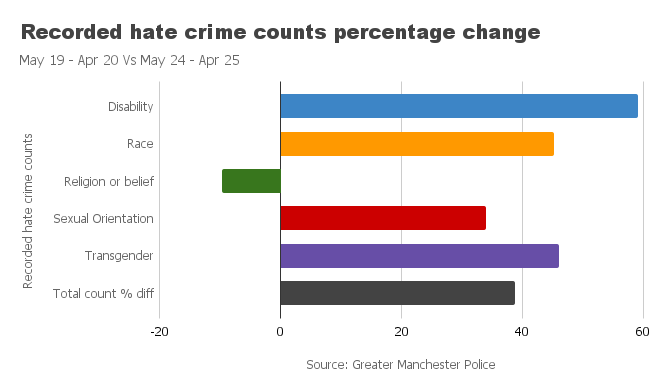
The biggest increases by protected characteristic are hate crimes recorded against disabled and transgender people, at nearly 60 per cent and more than 46 per cent, respectively.
Wheelchair user and CEO of transgender charity Sparkle, Jay Crawford, was unsurprised by the figure and said: “We have a lot of trans women who believe if they leave their front door they’re going to face crime straight away or be a target.”
Hate crimes based on perceived sexual orientation show an increase of almost 34 per cent for the same period. There were over 359 more reports in the most recent recorded year, bringing it to 1418.
Those aimed at attributes of religion or belief totalled 743 in the 12 months to April 2025 which is actually a decrease of just over nine per cent which is amplified by spikes in religious hate crime in the last year to two years – meaning recovery would be sharper.
Hate crimes recorded as being based on race, for the same date range, show an increase of just over 45 per cent, and consistently carry the highest count. Crimes recorded as motivated by perceived racial hatred between May 2024 and April 2025 amounted to 7710.
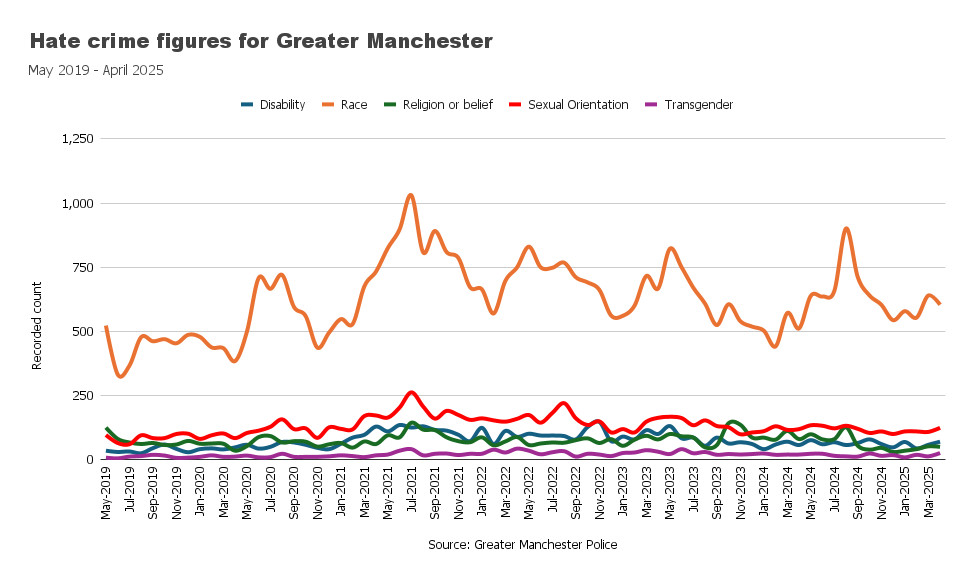
Despite recoveries from where there is clear correlation between the data and times of political unrest or protests, such as last August where police issued statements of reassurance, it shows much is still to be done to tackle the ongoing scourge of hate.
The Crown Prosecution Service (CPS) states that any crime can be prosecuted as a hate crime if the offender has demonstrated hostility, or been motivated by it, based on one or more of the characteristics featured above. With the absence of legal definition, the CPS uses what it terms the ‘everyday understanding of the word hostility’, which includes ill-will, spite, contempt, prejudice, unfriendliness, antagonism, resentment and dislike.
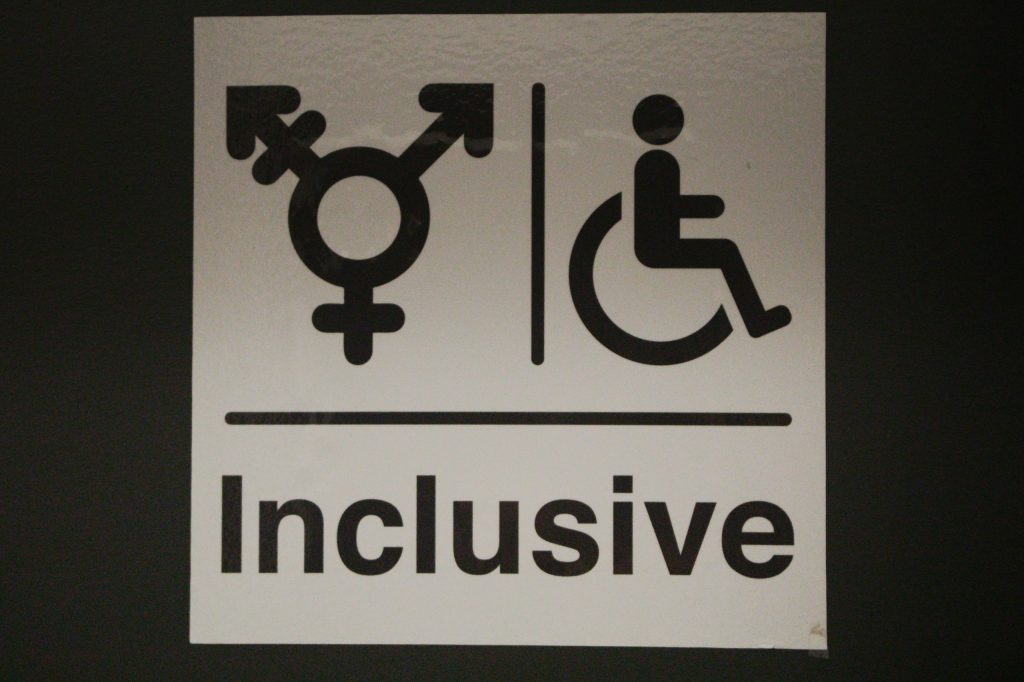
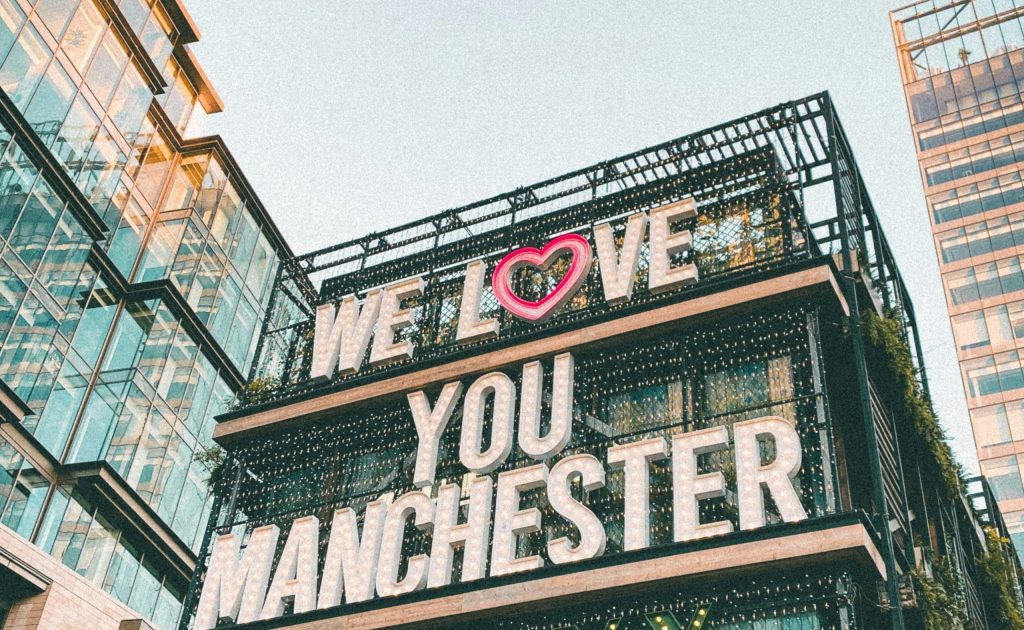
A Greater Manchester Combined Authority (GMCA) spokesperson for the Safer Stronger Communities team acknowledged that figures show a post-lockdown peak and cited some improvements since. However, figures remain higher than the 12 months up to May 2020.
In any case, Sparkle’s Crawford told Mancunian Matters: “It’s about value-based statistics.”
The charity boss added that trans people do not have a dedicated community centre. However, they exist for many backgrounds and religions. This makes underreporting for trans hate crime a big concern and could mean that the situation is far worse than pictured.
Not only are the opportunities to report hate crime and incidents, or be educated on doing so, less available – Crawford is sure new legislation will further prevent future reports from trans people.
Last month the Supreme Court ruled the terms woman and sex, in the Equality Act 2010, refer to a biological woman and biological sex. Now, many organisations, like the police, are reviewing policies around transgender people, for instance regarding full body searches.
The police data publication also states that existing figures are subject to change over time, retrospectively. It adds that crimes can be cancelled or reclassified at any point in time after recording, meaning revision can affect counts as well as the date to which they applied. Furthermore, multiple motivations can be recorded for one incident, particularly for sub-sectional minorities.
Crawford explains that this is more common than you might think. “Say for example, like me, you’re transgender but you also have a disability“, They said.
“A limitation of the statistics is that they will always have a skew of what is viable to prosecute.”
These crimes are only part of what people on the receiving end of hatred experience. Hate incidents are recorded separately to hate crimes and are advised to be reported as such. They can be things like name calling or hateful literature up to the threshold of criminality, i.e. harassment. Greater Manchester Police have recorded hate incidents in the same data sheet, for the same protected characteristics.
One thing GMP hasn’t provided is information on whether a crime or incident was committed online, and, if so, where it actually occured.

In 2020 the GMCA and the office of the Police and Crime Commissioner, informed by multiple partners including the Fire Service, launched the Hate Crime Plan. It was revised in 2024 and it allows organisations and local authorities, within Greater Manchester’s boroughs, resources to educate and inform their areas, or groups, on hate crime and reporting.
The areas of focus are: Improving education, prevention and early intervention, bringing communities together, increasing communication and awareness of hate crime and its consequences, increase the confidence to report and improve support for victims of hate crime.
Greater Manchester has an additional Hate Crime Awareness Week, annually, in February and marks the national week in October to maximise the opportunity to educate on hate. The area also focuses its hate crime activity and reporting on letsendhatecrime.com but there is also the true-vision reporting service, where vital anonymous reporting is possible.
Crawford said: “We as an organisation rely on things being anonymous to improve the intake for trans people and support them.
“People find a lot of comfort in that.”
They acknowledge that activity to tackle hate crime, by GMCA and GMP, has been observed, but said: “More needs to be done.”
Crawford asks if efforts, until now, to educate have gone far enough and if services are accessible enough to really be able to show accurate data.
They agree that the community awaits more data which could show a visible impact after Equality Act clarification from the Supreme Court, extra Reform seats in local government and anti LGBTQ+ rhetoric from both sides of the Atlantic.
Image Credits: Featured Image Credit Photo by Markus Spike, Unsplash / Image Credit: (Wheelchair + Gender symbols) Danille Claude Belange, Unsplash / Image Credit: (We love you Manchester) Surya Prasad Awnib, Unsplash, Image Credit: (phone and app icons) Dole777, Unsplash.
